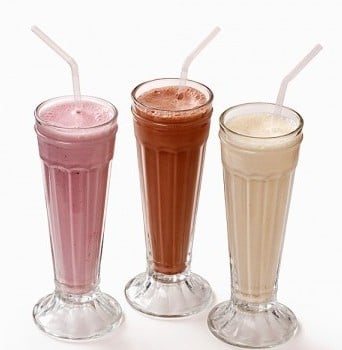
Christina: This is Christina with the DVCC and today I’m joined with Greg, trainer at the DVCC’s Northampton location, to discuss something we’re all guilty of – overindulging over the holidays.
Greg, it’s easy to get tempted at the office party or family dinner and want to overindulge – can we take a break from our usual meal plan over Christmas?
Greg: Yes. I would say it’s probably one of the very few times in the year in which you can take a break from nutrition. Having said that, you don’t want to go crazy and eat loads of bad food; for one or two days, then I don’t see why not.
Christina: Ok, so what’s your idea of going crazy or not going crazy?
Greg: If you spend Christmas Day and Boxing Day having a couple of meals away from your nutrition plan and a couple of chocolates here and there, maybe a couple of drinks – as opposed to spending four or five days eating nothing but chocolate; there’s quite a big difference.
Christina: So we’re allowed two days of eating a little extra, but not five?
Greg: Yes. I would say try and do one if possible; I know many people have another meal on Boxing Day. One to two, you don’t want to go any more than that.
One to two days you can recover within a week; so you might gain a pound or so in the two days, but you have five more days in that week to then make up for it, as opposed to if you did five or six days that’s the entire week gone.
Christina: That’s interesting. So let’s say we overeat quite a bit on Christmas Day and we go back to the gym on the 27th for example, it should take about four to five days to recover that excess.
Greg: It really depends how much you’ve had on Christmas Day, but you could expect to lose it again anywhere between two to five days.
Christina: Ok, so you have to decide whether it’s worth it or not then?
Greg: Yes, I guess. You don’t want to give yourself extra work to do if it’s not going to be worth it.
Christina: If we are going to indulge in an extra glass of wine, a little bit more food here and there; is there a time of day that’s better to do that or it doesn’t really matter?
Greg: I would say try, if possible, I guess it depends on what you like to do on Christmas, your family traditions; but if possible, have the meal later on in the day, maybe the last meal of the day, late afternoon or something like that.
Try and eat well for the first half of the day, because if you start off on a bad foot it’s going to be very difficult to even try and eat well in the day. So if you save it until the late afternoon or evening, it’s going to put you in a better position.
Christina: Are there any dangers in overindulging, even if it’s just a couple of times?
Greg: You’ve got immediate fat gain, potentially. It depends how long it’s going to go on for; if you had one day then maybe a little bit of fat gain is all you’re going to expect. If it was lasting over four or five days, then potentially you’re going to get some old habits creep back in, which isn’t going to be very beneficial at all. So just try to limit it to one or two days to make sure you keep to good habits straight after.
Christina: When you say habits, is that all to do with things that we’re eating?
Greg: Yes, and drinking. As an example, alcohol: over the Christmas period is consumed by many; so if you’re someone that used to drink often, then through following the better nutrition pattern you stopped, over the Christmas you might have a drink three or four days in a row and that might carry over into the next week. So just try to make sure it is one or two days and then as soon as they’re over you get back to how you were before.
Christina: What about for people that have been on a very healthy meal plan for a very long time; does that have any kind of effect on the body if they suddenly begin to drink alcohol or eat heavy fat food?
Greg: Yes, you can even see this with reset meals. If you have a large amount of carbohydrate for example, you might feel quite tired after, just because you’re not used to it. You will produce a lot of insulin and as soon as you’ve eaten the meal you’ll feel really sleepy.
Also, you might actually be intolerant to quite a lot of things, for example wheat, gluten or lactose etc; all this food you’re going to be eating might be high in that and you may feel irritated from it.
Christina: When you say irritated, do you mean mood?
Greg: No, your stomach. So you might, for example, feel sick or you might have stomach pain, that kind of thing.
Christina: Ok. So what’s the sensible way, if there is a sensible way, to enjoy the holidays but without going overboard?
Greg: Always start the day with a good breakfast; get your protein and healthy fat in; that doesn’t really need to change from any other day.
Then obviously you’ve got Christmas lunch, so just be in the mindset that you know it’s Christmas lunch, it’s not going to be the best meal in the world. No-one wants to be super strict on Christmas Day; so start off with breakfast as normal, relax a little bit around Christmas lunch/dinner, maybe have a couple of glasses of wine.
If possible have red wine, that’s a bit better than anything else. And then maybe have some Christmas pudding, but just not three or four helpings!
 Christina: You mentioned that red wine is better than anything else; why is that?
Christina: You mentioned that red wine is better than anything else; why is that?
Greg: It’s been scientifically shown that a glass of red wine a day can lower blood pressure a little bit; I believe it’s high in antioxidants as well.
Christina: The problem is keeping it at one glass a day?
Greg: Yes, one glass and not one bottle!
Christina: So apart from red wine, are there any other sensible options that we can choose without being anti-social or super strict?
Greg: In terms of food or drink, or both?
Christina: Both.
Greg: So we’ll start with the drink as you just linked it to red wine; red wine is probably the best option; other than that, no alcohol is really good. I guess if you really don’t like red wine, you could perhaps go for more of a light coloured spirit, for example vodka or gin. They’re not going to be good; they’re just maybe less bad than a pint of beer would be.
In terms of food: Christmas lunch has always got lots of vegetables and meat, they are fine, just try to limit the amount of potatoes and Yorkshire puddings etc., try not to have loads of those.
Snacks, etc: people tend to eat quite a few nuts at Christmas; they are fine, they’re a better option than chocolate or anything like that.
Christina: What’s the absolute worst thing that we could eat or drink?
Greg: I guess with a Christmas lunch, you’re looking at loads of potatoes that have been cooked in lard or fat; lots of alcohol, like beer; then Christmas cake and cream, stuff like that.
Christina: So it’s really basically very heavy foods; and it sounds like beer is a no-go?
Greg: Yes, try and avoid beer. And that goes for other things, like Guinness and ales, that kind of stuff; they’re not great.
Christina: What about the people that say, it’s Christmas, I’ll just eat what I want and then I’ll burn it off in January?
Greg: To them I would say why give yourself more work to do in January? Between Christmas and New Year there’s almost an entire week, so why would you put it off and waste it. You might as well use that week to try and lose a pound or two and give yourself a bit of a head start going into the New Year.
Christina: You mentioned the New Year; I imagine that’s one of your busiest times at the DVCC. Why do you think that would be?
Greg: It is, yes. I think purely because it’s a time of year in which people set themselves a lot of goals and set out things they want to achieve in that year. Now with all the media attention around health and obesity, etc, more and more people are becoming conscious about their health and weight so I think the New Year, to a lot of people, seems like a good idea or a good place to start from.
Christina: Are there many cases of people who sign up in the New Year with New Year’s resolutions and then they don’t stay around?
Greg: Yes, I think that’s probably the case with every fitness facility in the country, to be honest. But I think we do a very good job in maintaining motivation through an entire year; we don’t have that many people who leave, especially if you compared it to a mainstream gym that would have a very large percentage leave after a few months.
Christina: So you have more people that stay on at the DVCC than other fitness centres, would you say?
Greg: Yes, I would say, as a percentage; it’s all relative to how many people you have coming in the first place but I would say we do.
Christina: And how do you motivate people to carry on healthy habits throughout the year?
Greg: The biggest thing to people staying on is results; so if you get people really good results, that makes them more motivated, gives them momentum and they will carry on.
It’s very unusual if you have someone who may lose 20lbs of body fat who will then stop and just put it all back on, so by getting them good results you’ll probably find that they’ll want to carry on themselves anyway.
Christina: A lot of people go on diets in January, or one of their goals is to eat less, lose a stone in January. What are the problems of this type of dieting?
Greg: The biggest problem with that is it’s just not maintainable. The most important thing with any decent nutritional training protocol is that you’re able to maintain it and be consistent with it.
 It’s very easy to go on a milk shake diet or something like that, or whatever they are, and lose a stone in a very short amount time, but can you really carry that on for a long time? You just have to ask yourself, can you see yourself doing this in six months? If the answer is no, then you’re not really going on the right track because it’s not going to be maintainable.
It’s very easy to go on a milk shake diet or something like that, or whatever they are, and lose a stone in a very short amount time, but can you really carry that on for a long time? You just have to ask yourself, can you see yourself doing this in six months? If the answer is no, then you’re not really going on the right track because it’s not going to be maintainable.
Christina: If somebody has been on a milk shake diet, for example, for a month and then suddenly goes back to their usual diet, are they likely to see the weight pile back on again anyway?
Greg: Yes, for two reasons: one, through drinking only milk shakes, they probably would have missed a load of food and they’ll just want to go and eat it. And secondly, they would have slowed their metabolism down somewhat, so when they eat this bad food, they just pile on the weight quicker.
Christina: What about these fad diets then, talking about them? What’s the worst fad diet you’ve ever seen and why was it so bad?
Greg: It’s hard to say the worst fad diet; I don’t tend to spend much time looking at them. I guess if you were to say the most popular – I’m not even sure they would be considered fad diets – but the most popular things we see are probably Weight Watchers and Slimming World.
I’m not going to say that they are terribly bad for us because they work for some people; but they don’t really include exercise and generally it ends up in people eating less food, which therefore like I said before, doesn’t make it maintainable. So people can either stall quickly or get back into old habits and gain the weight again.
Christina: So they get tired of counting points or calories and then it all goes up in the air?
Greg: Yes; if you start from where you are joining Weight Watchers, start counting points or however it works, there’s quite a big change. It’s a change in how you’re eating, it’s a change in how you’re thinking about food, so it’s difficult to maintain it for a long time which is obviously what’s going to get you results.
Christina: Ok, so going back to the upcoming festivities: is there any way that your clients can say ok, the week before Christmas I’m going to do loads of exercise now, eat less and then eat more over Christmas, or does it not work that way?
Greg: If they really wanted to, they could; but I wouldn’t have the mindset now of I’m going to eat less now to eat more Christmas Day.
What I’ve said to them is try and use the time you have now to lose a pound or two and then try and maintain over Christmas. So don’t go in with the mindset that you’re going to eat more and probably gain fat, go in with the mindset that you’re not going to lose fat. Just try and maintain as best you can and then over the week or two weeks, you’ve still had a net loss. So you can take a positive from it and you can go to the time after Christmas in good spirits.
Christina: What about the New Year then? How can they get a head start on the New Year?
Greg: It links back to what we’ve just said really; just maintain over Christmas so you’re not giving yourself more work to do. And then make sure that in the time you have leading up to New Year, you do as much as you can, potentially lose a pound or two, and then into the New Year you’ve got a good head start and you’ll be in a good place, mindset and motivation wise.
Christina: What about if I’m a first timer at the fitness centre or doing exercise? What kind of exercise plan or nutrition do you recommend to people starting for the first time?
Greg: In terms of exercise, I’d encourage them to use resistance based exercise or use weights, because building lean muscle tissue is going to help you in turn burn more fat, it’s going to give you a faster metabolism and just overall make you look better. I’d also encourage you to do intervals; they’re scientifically proven the best way to burn fat but they also take less time so you’re not going to be bored sitting on a treadmill for 30-40 minutes; you’re going to be 10 minutes and it’s done.
With nutrition, just start by cutting out some of the junk; forget the crisps, biscuits etc., and another thing is you can stop drinking calories. Put down the coca cola and that kind of stuff and just drink water. I think those two changes alone will, depending on where you start from, will get you fairly good results.
Christina: Great – and that’s not something that’s terribly difficult to implement, depending on the level of addiction I suppose people have to coca cola and things like that!
Greg: It all depends where you start from; if you’re used to drinking 2 litres of coke a day, then cutting out coke is going to be quite difficult, whereas if you have a can here and there it’s going to be a fairly easy change.
Christina: Do you have anything else to add; any more advice?
Greg: Just enjoy Christmas but be as sensible as you can. Be intentional of everything you do, so try not to just binge on loads of bad food – and then give yourself a good start into the New Year so you don’t have extra work to do.
Christina: Ok, thanks very much Greg.
The DVCC has centres in Bedford, Milton Keynes, Northampton, Hitchin and very shortly Stevenage and Central Bedfordshire. So if you’ve been listening to this interview and you’d like to find out more about how the DVCC can help you, then please book an appointment for a DVCC 60 minute discovery phone call, at www.theDVCC.com/signup.









